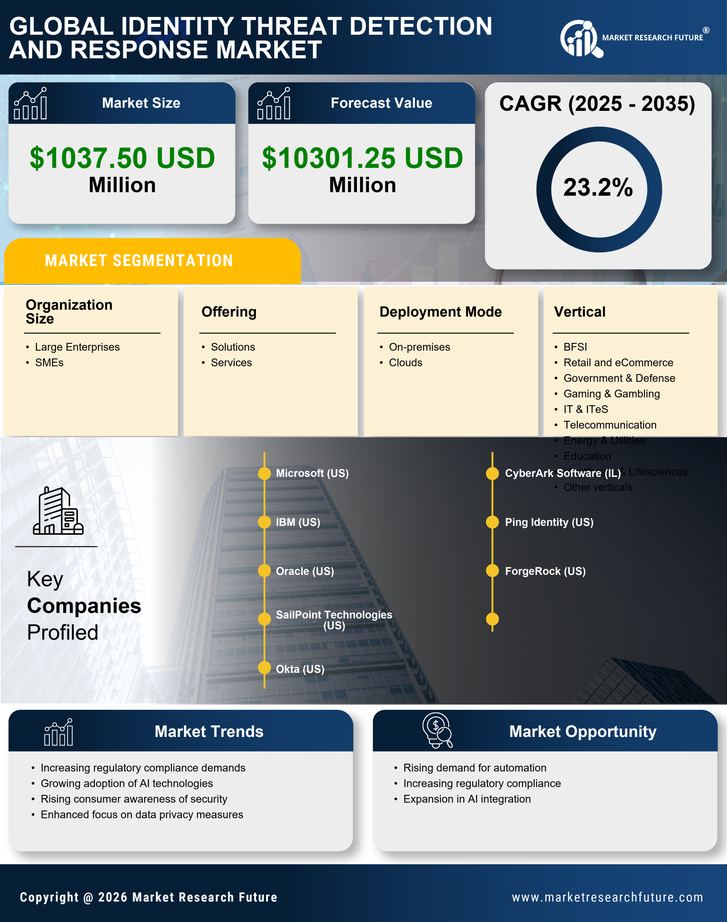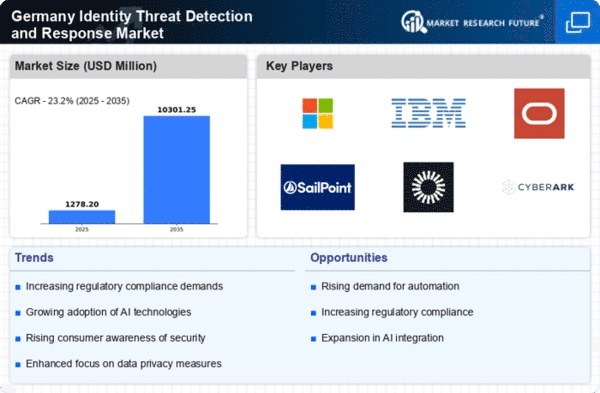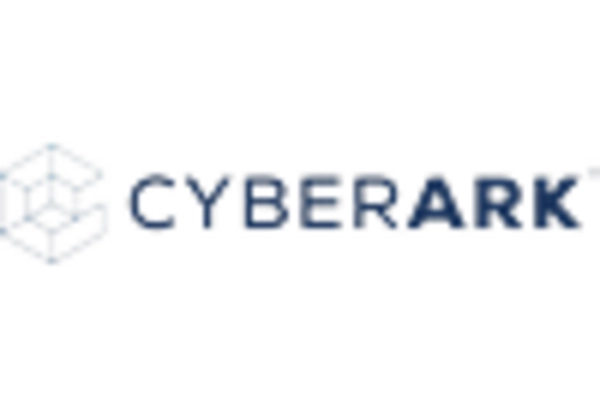Rising Cyber Threats
The identity threat-detection-response market in Germany is experiencing growth. This growth is due to the increasing frequency and sophistication of cyber threats. Reports indicate that cybercrime costs the German economy approximately €100 billion annually, highlighting the urgent need for robust identity protection solutions. As organizations face threats such as phishing, identity theft, and data breaches, the demand for advanced detection and response technologies intensifies. This trend is further fueled by the growing awareness among businesses regarding the potential financial and reputational damage associated with identity-related incidents. Consequently, companies are investing in comprehensive identity threat-detection-response solutions to safeguard their assets and maintain customer trust.
Technological Advancements
Technological innovations play a pivotal role in shaping the identity threat-detection-response market in Germany. The integration of advanced technologies such as artificial intelligence (AI) and machine learning (ML) enhances the capabilities of identity protection systems. These technologies enable real-time threat detection and automated responses, significantly improving the efficiency of security measures. As organizations increasingly adopt these technologies, the market is projected to grow at a CAGR of 15% over the next five years. This growth is indicative of the market's potential to evolve and adapt to emerging threats, ensuring that businesses remain resilient against identity-related risks.
Consumer Awareness and Demand
Consumer awareness regarding identity theft and data privacy is on the rise in Germany, significantly impacting the identity threat-detection-response market. As individuals become more informed about the risks associated with their personal information, they are demanding stronger security measures from businesses. This shift in consumer expectations is prompting organizations to enhance their identity protection strategies. Market Research Future indicates that 70% of consumers are willing to switch brands if they feel their data is not adequately protected. This growing demand for robust identity threat-detection-response solutions is likely to drive market growth as companies strive to meet consumer expectations and build trust.
Increased Regulatory Scrutiny
The identity threat-detection-response market in Germany is significantly influenced by heightened regulatory scrutiny. This scrutiny surrounds data protection and privacy. The implementation of the General Data Protection Regulation (GDPR) has compelled organizations to prioritize identity security measures. Non-compliance with these regulations can result in hefty fines, reaching up to €20 million or 4% of annual global turnover, whichever is higher. As a result, businesses are increasingly investing in identity threat-detection-response solutions to ensure compliance and mitigate risks associated with data breaches. This regulatory landscape is likely to drive market growth as organizations seek to align their security practices with legal requirements.
Growing Digital Transformation
The ongoing digital transformation across various sectors in Germany is a key driver for the identity threat-detection-response market. This transformation increases the volume of sensitive data being processed and stored. As businesses transition to digital platforms, the volume of sensitive data being processed and stored increases, thereby elevating the risk of identity-related threats. The market is projected to reach €1 billion by 2026, reflecting the urgent need for effective identity protection solutions. Organizations are recognizing that traditional security measures may no longer suffice in the face of evolving cyber threats. Consequently, there is a growing emphasis on implementing comprehensive identity threat-detection-response strategies to safeguard digital assets and maintain operational integrity.

















